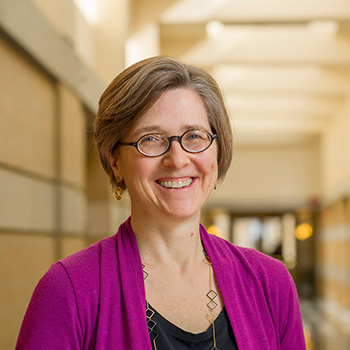Political elites take advantage of anti-partisan protests to disrupt politics

Protest movements that reject political parties have an unintended consequence, according to new research from the University of Notre Dame: They empower savvy politicians who channel them to shake up the status quo.
The findings provide a framework for understanding recent global political realignments and offer lessons for activists who want to make a meaningful impact. They are particularly relevant in an era when mass protests have become an increasingly common tool to voice dissent with powerful institutions and draw attention to overlooked issues ranging from climate and conflict to inequality and human rights.
Ann Mische, associate professor of sociology and peace studies at the Keough School of Global Affairs at Notre Dame, and Tomás Gold, a Notre Dame doctoral candidate and doctoral fellow at the Keough School’s Kellogg Institute for International Studies, co-authored the study, published in the American Journal of Sociology. The authors received funding from the Kellogg Institute and the Nanovic Institute for European Studies, as well as Notre Dame’s Graduate School.
“Despite protesters’ strong rejection of parties, political parties have not ignored the protesters,” Mische said. “In fact, many partisan actors have found ways to use this hostility to their advantage, disrupting ‘politics as usual’ and contributing to political reconfigurations that surprised both actors and spectators.”
Mische and Gold analyzed data from the Varieties of Democracy Project, which provides several authoritative ways to measure democracy. The international project, widely cited by scholars, is affiliated with the Keough School’s Kellogg Institute.
Using the data, Mische and Gold analyzed 12 case studies across Europe, Asia, and North and South America between 2008 and 2016, amid the fallout of the global financial crisis and the ongoing rejection of parties that were seen as unable or unwilling to confront it.

They found that in response to massive anti-partisan protests, these countries generally experienced one of four outcomes: internal factional challenges within highly established parties (e.g., Labour leader Jeremy Corbyn in the United Kingdom); the emergence of new or renovated parties (Podemos, or “We Can,” an anti-austerity Spanish party); the formation of new anti-incumbent party coalitions (the Broad Front UNEN and Cambiemos coalitions in Argentina); and the rise of extreme populist leaders (such as Jair Bolsonaro in Brazil).
Mische and Gold said these varied outcomes could be explained by looking at the project’s data measuring parties’ institutional strength, the degree to which parties were cohesive or fragmented, and the overall numbers of viable political parties competing for power.
They used a comparative approach that bridged insights from sociology and political science, drawing on datasets to determine how the combination of these three variables generated different opportunities for political actors to navigate the challenges to the status quo. They complemented this analysis with a process-oriented account of how party-movement interactions contributed to these diverging pathways.
“We focused on how political elites can take advantage of the fact that they are rejected by protesters,” Gold said. “That paradox lies at the heart of this paper.”
Ultimately, Mische and Gold said, the study could serve as a cautionary tale to protesters who reject political parties rather than trying to negotiate with them. This rejection can paradoxically undermine activist goals by amplifying distrust in institutions and paving the way for populist demagogues.
“Sometimes you need social movements to challenge entrenched systems and respond to the needs and aspirations of the people,” Mische said, adding that further research could help explore the dynamics of insider-outsider coalitions for enacting reforms.
“But if you reject working with the state, then you cannot influence the development of policies that are important for the things that you care about. You may, instead, empower autocrats who don’t share your values but are adept at weaponizing institutional distrust. Understanding this dynamic is important to working for change and to strengthening global democracy at a time when institutions are increasingly under attack.”
Originally published by Josh Stowe at keough.nd.edu on May 21.
Contact: Tracy DeStazio, associate director of media relations, 574-631-9958 or tdestazi@nd.edu
Latest ND NewsWire
- Brain tumor growth patterns may help inform patient care managementAssistant Professor Meenal Datta (University of Notre Dame/Wes Evard) A team of researchers from the University of Notre Dame, Harvard Medical School/Massachusetts General Hospital, and Boston University has developed a technique for measuring a brain tumor’s mechanical force and a new model to estimate how much brain tissue a patient has lost.
- Notre Dame elects two new TrusteesTwo new Trustees — John F. Crowley and Danielle Walker Merfeld — have been elected to serve on the University of Notre Dame’s Board of Trustees effective July 1. …
- From reaction to resolution: The future of allergy treatmentTwelve-year-old Lauren Eglite was thrilled to attend a Notre Dame football game with her father, Erik, in 2017, even though her acute peanut allergy demands constant vigilance. She was even more excited when the stadium’s brand-new video board aired an NBC Fighting…
- Notre Dame student uses ‘American Ninja Warrior’ spotlight to fight world hunger via his nonprofitOn July 14 (Monday), a University of Notre Dame business student will compete in the semifinal round of NBC’s “American Ninja Warrior” to advocate for an end to world hunger, an ambition he works toward by making knotted dog toys and collecting donations to his nonprofit.
- In sub-Saharan Africa, 1 in 6 cancer medications found to be defectiveSerious quality defects were found in a significant number of cancer medications from sub-Saharan Africa, according to new research from the University of Notre Dame.
- Alumni Association awards 2025 Lennon Life PrizesThe Notre Dame Alumni Association recognized nine alumni clubs as recipients of the Lennon Life Prize — part of the Chuck and Joan Lennon Gospel of Life Initiative, a set of programs focused on encouraging the University’s dedicated network of clubs to uphold the value of life at all stages.












